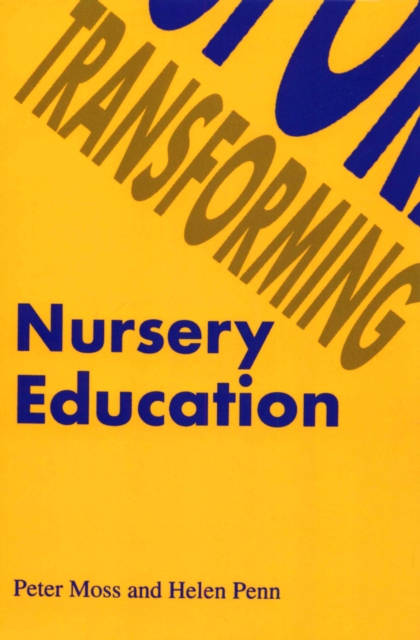
Transforming Nursery Education : SAGE Publications PDF
by Peter Moss, Helen Penn
Description
`This is an important publication, which I urge colleagues to read and to consider carefully all the implications' - Early Years
`... This provocative analysis with its clear examples is worth reading for its fresh look at where we could be headed come the 21st century'- Nursery Equipment
Early childhood services in the UK have been badly neglected. The consequences are serious: chronic underfunding and increasing fragmentation; most staff poorly paid and trained; access often a matter of potluck and money; low aspirations and even lower expectations. Increasingly, young children are seen as important for what they may become rather than for what they are, and the case for early childhood services is made out in terms of later performance in school and adult life rather than the needs and rights of young children themselves. No current political vision redresses this undervaluing of early childhood or addresses the parlous state our early childhood services are in.
Drawing on the rich early childhood tradition in the UK, going back to Robert Owen, and giving examples from current practice, Transforming Nursery Education offers a critique of the status quo, a vision of early childhood services and practical strategies for achieving it.The book covers a wide range of day care and education services and critical issues such as staffing, funding, curriculum, models of provision and the age at which children start compulsory schooling.
Within this broad approach, the book focuses in particular on the history and current practice of nursery education. It argues that the present narrow approach to nursery education is neither appropriate to the needs of today nor inevitable. It answers a critical question: how can nursery education be transformed to play a leading role in the comprehensive, integrated and coherent early childhood service that today's families really need?
Information
-
Download - Immediately Available
- Format:PDF
- Pages:192 pages
- Publisher:SAGE Publications
- Publication Date:28/03/1996
- Category:
- ISBN:9781446266144
Information
-
Download - Immediately Available
- Format:PDF
- Pages:192 pages
- Publisher:SAGE Publications
- Publication Date:28/03/1996
- Category:
- ISBN:9781446266144






